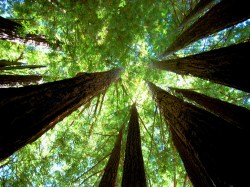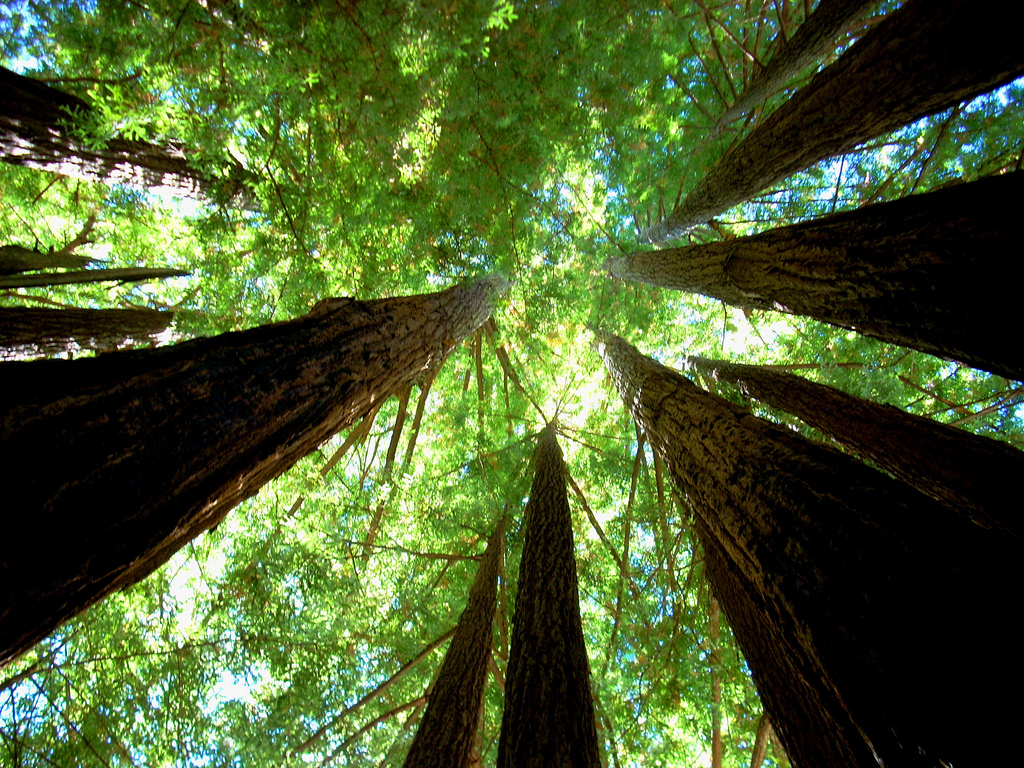
Richard Masoner / CycleliciousFuck off, redwoods. We’ve got grapes that need that space.
Global warming and the growing global appetite for wine have vineyards on the march.
As the climate in southern England warms to resemble that of France’s Champagne region, British growers are cultivating grapes that make bubbly. Viniculturists are also setting up operations in remote parts of British Columbia and China. And in California, the booming wine industry is crawling out of warming valleys and edging toward the coast — which is bad news for coastal ecosystems.
Areas suitable for vineyards in the world’s major wine-producing regions could shrink between 19 and 73 percent by 2050, according to a study published in April in Proceedings of the National Academy of Sciences. The researchers say growers will look for new lands on which to plant their vines, razing wild areas in their wine-making quests.
“Climate change may cause establishment of vineyards at higher elevations,” the scientists wrote. That “may lead to conversion of natural vegetation.”
And so it is in California’s Sonoma County, where environmentalists are fighting in court to prevent a Spanish winemaker from leveling 154 acres with coast redwoods and Douglas firs to make space for new grapevines. NPR reports:
Redwoods only grow in the relatively cool coastal region of Northern California and southern Oregon. Parts of this range, such as northwestern Sonoma County, have become increasingly coveted by winemakers.
Chris Poehlmann, president of a small organization called Friends of the Gualala River, says the wine industry is creeping toward the coast as California’s interior valleys heat up and consumers show preferences for cooler-weather grapes like pinot noir.
“Inexorably, the wine industry is looking for new places to plant vineyards,” says Poehlmann, whose group is among the plaintiffs.
Artesa Vineyards and Winery has permission from California’s Department of Forestry and Fire Protection to level thousands of trees. The environmentalists are suing the agency, arguing that its approval of the plan violated the state’s environmental laws.
Poehlmann says the trees that would be cleared are up to 80 feet tall, providing wildlife habitat and protecting streams from erosion. But the winery’s spin doctor would like you to know that these are not old-growth trees (most are 50 years old), so “there are no forests” on the site. Just an awful lot of majestic trees.





